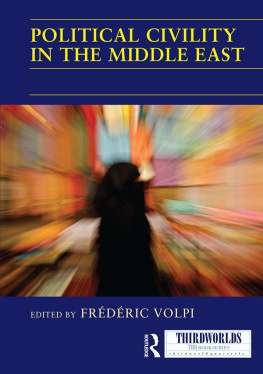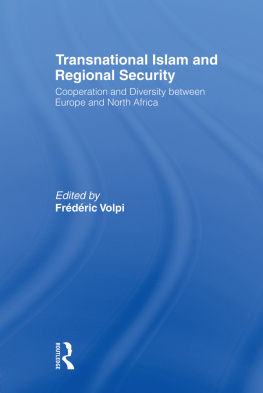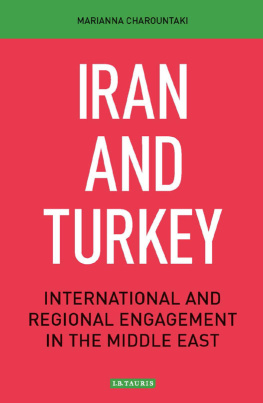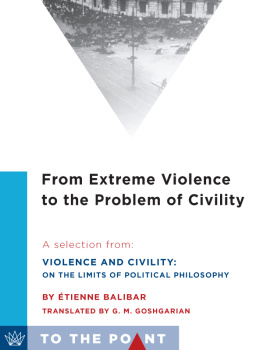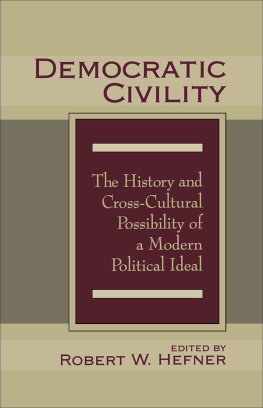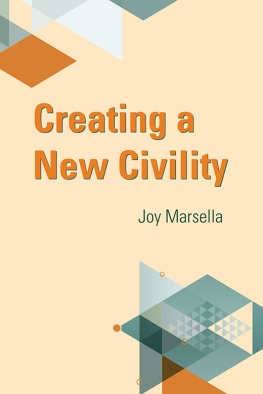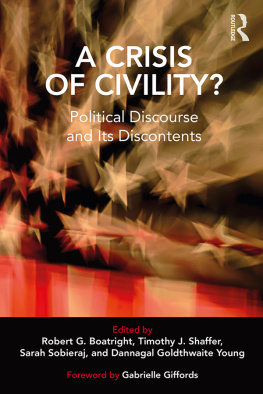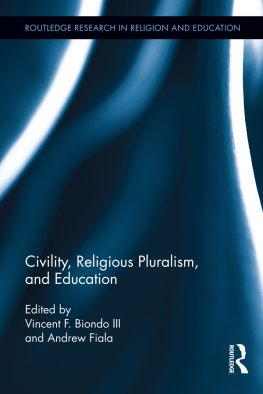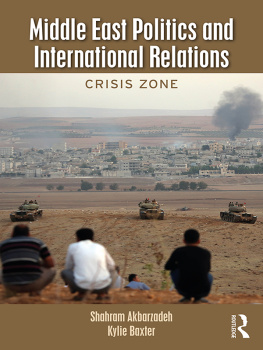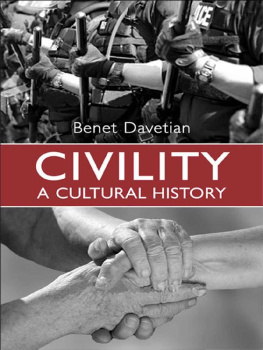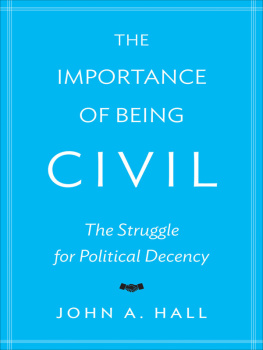Political Civility in the Middle East
Contemporary debates about civility are shaped by the dominant liberal and secular narratives of a peaceful world of sovereign nation-states. For contemporary scholars and policy makers, the challenge is to insert meaningfully the political evolution of the Middle East in the dominant liberal-democratic discourse about the current international order without invoking ill-conceived notions of Islamic exceptionalism.
The analyses gathered in this book challenge conventional western perspectives on civility as an expression of state-guaranteed free association in a non-violent space of discourse and behaviour. Considering the articulation of civil and civilised state- society relations in contemporary Middle Eastern polities, this book proposes both conceptual and empirical insights into the dynamics of the local, national and transnational formation of civility and of the civil sphere. Bypassing traditional oppositions between a western and an Islamic modernity, it provides an account of the communicative clusters of civility that represent the everyday formations of Islamic and secular subjects in settings organised by authoritarian-inclined state institutions and practices. It examines how the grassroots formation of new religious and secular identities/subjectivities and their relations with the Other underpin, as well as challenge and transform, the state-led processes of political ordering of a national and regional community.
This book was originally published as a special issue of Third World Quarterly.
Frederic Volpi is Senior Lecturer in International Relations and Director of the Institute of Middle Eastern and Central Asian Studies at the University of St Andrews. His research addresses the political construction of Islamism and democratic-authoritarian interactions in the Muslim world. His latest book is Political Islam Observed: Disciplinary Perspective (Columbia University Press, 2010).
Political Civility in the Middle East
Edited by
Frederic Volpi
First published 2012
by Routledge
2 Park Square, Milton Park, Abingdon, Oxon, OX14 4RN
Simultaneously published in the USA and Canada
by Routledge
711 Third Avenue, New York, NY 10017
Routledge is an imprint of the Taylor & Francis Group, an informa business
2012 Southseries Inc.
This book is a reproduction of Third World Quarterly, vol. 32, issue 5. The Publisher requests to those authors who may be citing this book to state, also, the bibliographical details of the special issue on which the book was based.
All rights reserved. No part of this book may be reprinted or reproduced or utilised in any form or by any electronic, mechanical, or other means, now known or hereafter invented, including photocopying and recording, or in any information storage or retrieval system, without permission in writing from the publishers.
Trademark notice: Product or corporate names may be trademarks or registered trademarks, and are used only for identification and explanation without intent to infringe.
British Library Cataloguing in Publication Data
A catalogue record for this book is available from the British Library
ISBN13: 978-0-415-69656-2
Disclaimer
The publisher would like to make readers aware that the chapters in this book are referred to as articles as they had been in the special issue. The publisher accepts responsibility for any inconsistencies that may have arisen in the course of preparing this volume for print.
Frdric Volpi
The contributions gathered in this collection address the issue of political transformations in the Middle East from a societal perspective. They challenge common assumptions about the primacy of high politics in the region by highlighting the role played by more micro-political processes involving the articulation of civility in those polities. In recent years critiques of state-centric analyses of political change in the region have commonly been formulated from the perspective of an analysis of civil society. Yet, in this collection of essays, we query the usefulness of mainstream civil society- based accounts of politics in the Middle East.
As recent events in the region indicate, regime change can occur in swift and unpredictable fashion. Yet it would be naive to surmise that a sudden change at the helm of the institutional system implies an equally sudden transformation of the political ethos and of state-society relations. Those individuals and practices that were previously harnessed to the authoritarian functioning of the state may now have an opportunity to produce in other forms of social and political behaviours. But even in those countries where genuine democratic reforms are now implemented, such an holistic transformation of the social and political sphere may not be swift, and it may not be as consensual a process as the removal of the previous authoritarian leadership was.
The arguments on civility that we are developing in these contributions focus on longer-term social trends and strategies. In many ways, although they help us understand the socio-political background of countries where we see change happening now, as well as giving us an indication of which issues and practices are now likely to be reappraised, they do not directly answer the dilemmas of and opportunities for regime change. At heart, we consider how notions of civility can help us to understand better these societal processes that have an impact on the formation of the political, while keeping at arms length the normative assumptions contained in the dominant liberal representations of civil society.
A new and tentative framing of the political processes in the Middle East using notions of civility is outlined in this collection in three interconnected sections. The first part, comprising two contributions by Armando Salvatore and Frdric Volpi, sets out the theoretical and historical context of the utilisation of concepts such as civility and civil society to understand and explain the contemporary dynamics of political change. They illustrate how Middle Eastern situations appear at once very close to and very distant from the dominant interpretations of Western political modernity. They outline the convergences and oppositions between Middle Eastern or Islamic contexts and the Western tradition of civility, as well as indicating the common misrepresentations of these issues in contemporary analyses.
The middle section of the work, comprising contributions by Salwa Ismail and by Ewan Stein on Egypt, by Pedro F Marceliho and Hermon Farahi on Morocco and Cape Verde, by Tim Jacoby on Turkey and by Adham Saouli on Lebanon, analyses the practical implications of different forms of civility (and incivility) in the polities of the region. These case studies illustrate how distinct dynamics of civility/incivility building intervene in political processes and help us understand better the patterns of change (and stability) in the region. The third and final section, comprising contributions from Michaelle Browers on the role of official religious authorities and from Emma Murphy on the role of the new media, highlight the cross-regional processes and mechanisms in which expressions of civility are mobilised more or less successfully. The reflective note by S Sayyid considers the global reframing of notions of civility in the Middle East in the light of recent changes in the region. Finally, the epilogue by Salwa Ismail reflects on what may be expected domestically from civility processes and aspirations after regime change.

